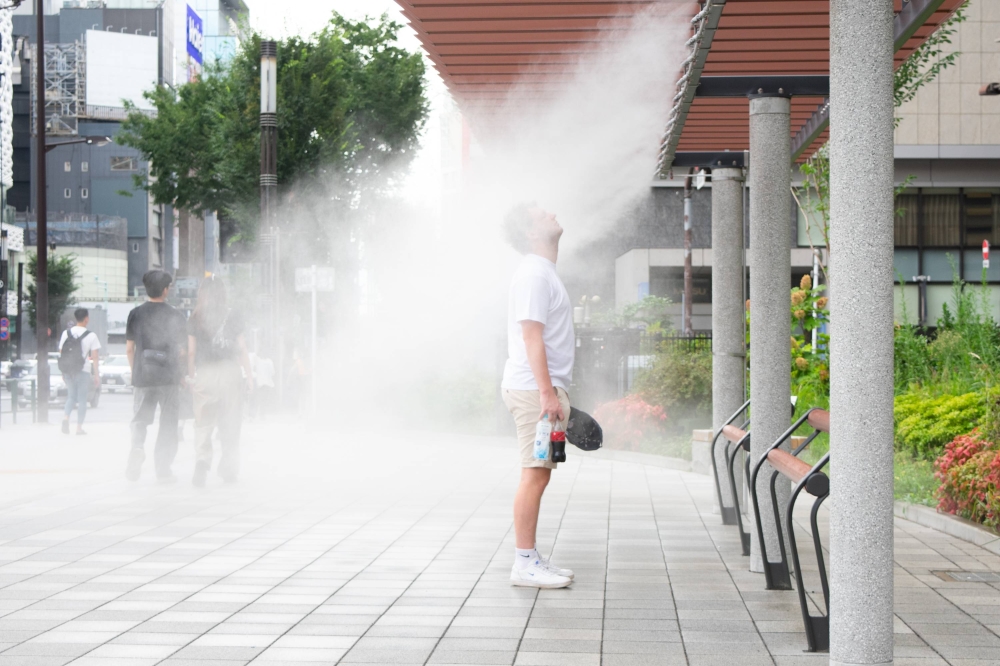Scorching temperatures swept Japan on Monday due to high pressure systems, with multiple regions topping 40 degrees Celsius for the first time this year.
The Japan Meteorological Agency and the Environment Ministry had issued a heat stroke alert for 38 of the nation’s 47 prefectures.
The hottest temperature recorded so far this year had been 40.0 C in the city of Shizuoka on July 7, but the mercury rose above that level in Shizuoka, Gunma, Saitama and Tochigi prefectures for the first time this year, making Monday the hottest day of 2024.
Notable readings include a peak of 41 C in Sano, Tochigi, by 2 p.m, as well as 40.2 C in the city of Hamamatsu, Shizuoka, by 11:42 a.m. and Tatebayashi, Gunma, at 2:20 p.m. The highest temperatures of the day typically occur between 2 p.m. and 3 p.m.
The peak temperature in Hamamatsu was made at least five times more likely due to climate change, according to Climate Central’s Climate Shift Index.
Monday’s temperatures came close to Japan’s highest recorded temperature — 41.1 C — which was reached in Kumagaya, Saitama Prefecture, on July 23, 2018, and in Hamamatsu on Aug. 17, 2020.
The Meteorological Agency and Environmental Ministry’s heat stroke alert covered the prefectures of Fukushima, Ibaraki, Tochigi, Gunma, Saitama, Tokyo (excluding the Ogasawara Islands), Chiba, Kanagawa, Nagano, Yamanashi, Shizuoka, Aichi, Gifu, Mie, Niigata, Toyama, Ishikawa, Shiga, Kyoto, Hyogo, Nara, Wakayama, Okayama, Hiroshima, Shimane, Tottori, Tokushima, Kagawa, Ehime, Kochi, Yamaguchi, Fukuoka, Oita, Nagasaki, Saga, Kumamoto, Miyazaki and parts of Kagoshima.
For Tuesday, heat stroke alerts have been issued for 30 prefectures.
The alerts advise residents to stay indoors, use air conditioning, stay hydrated and consumer a sufficient amount of salt. They also stress that extra care is needed to prevent the elderly and young children from developing heatstroke.


















.png)


Discussion about this post